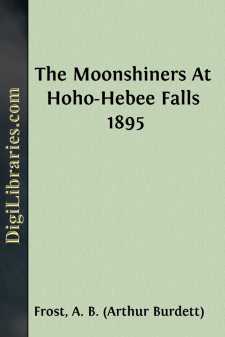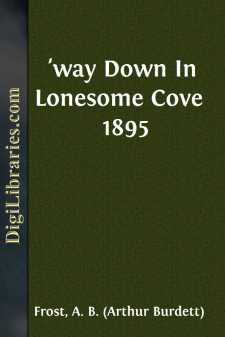Categories
- Antiques & Collectibles 13
- Architecture 36
- Art 48
- Bibles 22
- Biography & Autobiography 813
- Body, Mind & Spirit 142
- Business & Economics 28
- Children's Books 16
- Children's Fiction 13
- Computers 4
- Cooking 94
- Crafts & Hobbies 4
- Drama 346
- Education 46
- Family & Relationships 57
- Fiction 11829
- Games 19
- Gardening 17
- Health & Fitness 34
- History 1377
- House & Home 1
- Humor 147
- Juvenile Fiction 1873
- Juvenile Nonfiction 202
- Language Arts & Disciplines 88
- Law 16
- Literary Collections 686
- Literary Criticism 179
- Mathematics 13
- Medical 41
- Music 40
- Nature 179
- Non-Classifiable 1768
- Performing Arts 7
- Periodicals 1453
- Philosophy 64
- Photography 2
- Poetry 896
- Political Science 203
- Psychology 42
- Reference 154
- Religion 513
- Science 126
- Self-Help 84
- Social Science 81
- Sports & Recreation 34
- Study Aids 3
- Technology & Engineering 59
- Transportation 23
- Travel 463
- True Crime 29
The Associate Hermits
Description:
Excerpt
CHAPTER I
THE DAWN OF A WEDDING-JOURNEY
Mr. and Mrs. Hector Archibald were prosperous and happy dwellers in a suburb of one of our large towns. Fortune had favored them in many ways—in health and in a good average happiness. They had reached early middle age, and their daughter Kate, their only child, had grown up to be a beautiful and good young woman, and was on the point of marrying a young lawyer—Rodney Bringhurst by name—in every way worthy of her.
Hector Archibald was a little man, with small bright eyes, and hair slightly touched with gray and very much inclined to curl. His disposition was lively. He had a strong liking for cheerful occurrences, and was always willing to do his part in the bringing about of such events. Novelty had a charm for him. He was not bound by precedence and tradition, and if he had found himself at a dinner which began with coffee and ended with oysters on the half-shell, he would have given the unusual meal a most animated consideration, although he might have utterly withheld any subsequent approbation. As a general thing, he revolved in an orbit where one might always be able to find him, were the proper calculations made. But if any one drew a tangent for him, and its direction seemed suitable and interesting, he was perfectly willing to fly off on it.
The disposition of Mrs. Hector Archibald was different. She was born to be guided by customs, fashions, and forms. She believed it was the duty of a married woman to make her home happy, and she did it. But she also believed that in the best domestic circles there were rules and usages for domestic happiness which would apply to every domestic condition and contingency. It frequently troubled her, however, to find that certain customs, forms, or usages of domestic society had changed, and being of a conservative turn of mind, it was difficult for her to adapt herself to these changes. But, thoroughly loyal to the idea that what was done by people she loved and people she respected ought also to be done by her, she earnestly strove to fit herself to new conditions, especially when she saw that by not doing so she would be out of touch with her family and her friends.
Now of course the wedding of their daughter was the only thing in the world that seemed of real importance to Mr. and Mrs. Archibald, and for this all preparations and plans had been agreed upon and made with great good-will and harmony, excepting one thing, and that was the wedding-trip. Strange to say, the young people did not wish to take a wedding-trip. They believed that this old-fashioned custom was unnecessary, troublesome, commonplace, and stupid. In the gardens and grounds of the Archibald mansion, and in the beautiful surrounding country, they had loved each other as lovers, and among these scenes they wished to begin to love each other as a married couple. Why should such distasteful and unpleasant ingredients as railroad-cars, steamboats, and hotels be dashed into the pleasing mixture of their new lives?...







